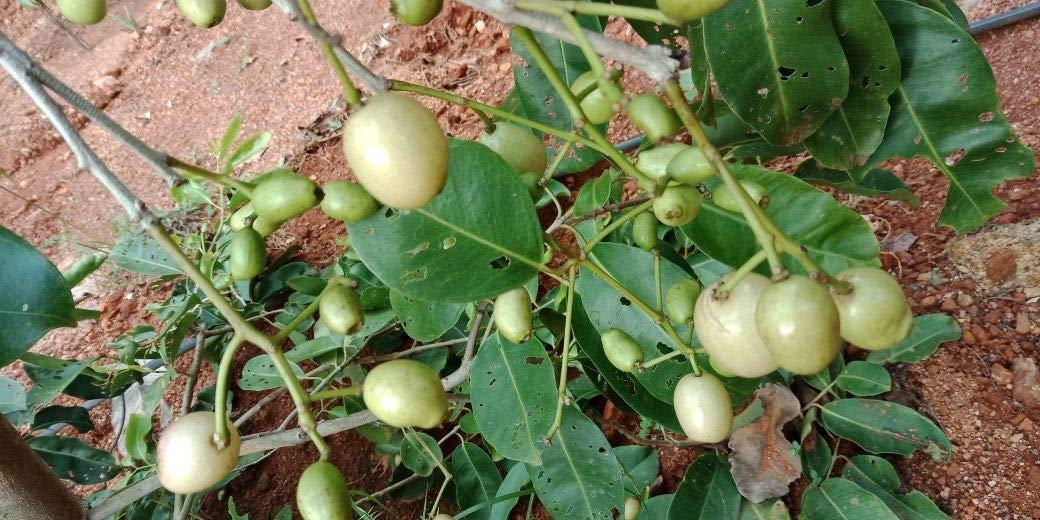The Njaval, also known as the white jamun or white Java plum, is a variety of the jamun fruit, which is scientifically named Syzygium cumini. This fruit is commonly found in South and Southeast Asia and has distinct characteristics compared to the more common purple or black jamun.
Characteristics:
-
Appearance:
- The fruit is elliptical or oblong and has a pale white or light greenish-white color when ripe.
- The outer skin is smooth, resembling the texture of the purple jamun.
-
Taste:
- The white Njaval has a mildly sweet flavor, less tangy or astringent compared to the black or purple varieties.
- It is softer and less acidic.
-
Nutritional Benefits:
- Rich in antioxidants, vitamin C, and fiber.
- Known to have a lower glycemic index, making it a healthy choice for diabetics.
- Contains bioactive compounds that may support digestive health and immunity.
-
Uses:
- Consumed fresh or as a juice.
- Used in traditional remedies to aid digestion, control blood sugar, and improve skin health.
- Its seeds are sometimes powdered and used in Ayurvedic medicine.
-
Tree Characteristics:
- The Njaval tree is medium to large in size with dense foliage, offering ample shade.
- It blooms with small, fragrant white flowers that develop into fruit.
-
Growing Conditions:
- Thrives in tropical and subtropical climates.
- Requires well-drained soil and is fairly drought-tolerant once established.

